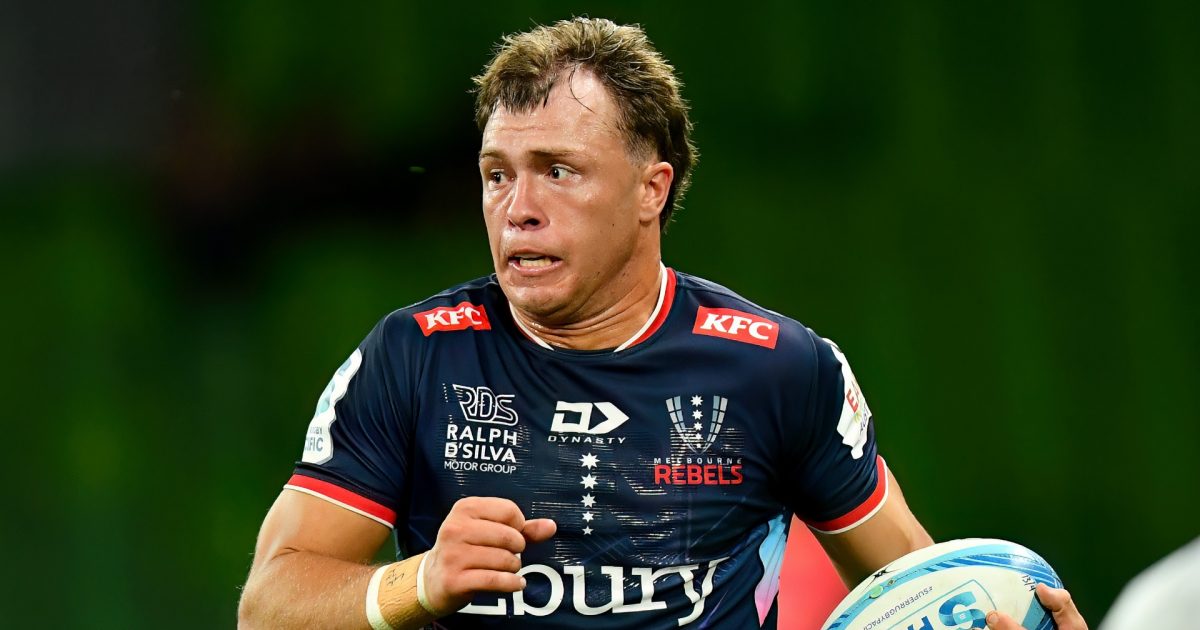Rugby Australia statement: Melbourne Rebels' administration

Rugby Australia have issued a statement after the administrator for the financially stricken Melbourne Rebels recommended creditors accept a proposed deal to save the club, adding it may have been trading while insolvent for the last five years.
The Rebels went into voluntary administration in January with Rugby Australia taking over their competition licence and covering player and staff payments until the end of this season.
RA is still working through a decision on whether to wind it up, but PwC administrator Stephen Longley has recommended in a report that creditors accept a proposal from directors to save the club, who this weekend play away at the Crusaders.
Rebels directors have proposed a deed of company arrangement (DOCA) which would guarantee employees 100 per cent of their entitlements, but leave unsecured creditors with as little as 15 cents to the dollar. The deal will be put to creditors, which includes RA, at a meeting on May 3.
A statement read: “Rugby Australia acknowledges the findings of the administrator’s report regarding Melbourne Rebels Rugby Union Pty Ltd issued to the company’s creditors.
“RA continues to solely fund and operate the Melbourne Rebels Club and its teams to ensure participation in the 2024 competitions. We have done so since the company was placed into voluntary administration by its former board of directors in January.
“For clarity, RA remains a creditor of the MRRU. We also welcome the positive news that MRRU employees are to receive full payment of their entitlements under the proposed deed of company arrangement.
“RA notes the public statement made by the former directors of MRRU in response to the administrator’s report. The administrator has not made comment on the strength of the claims of the former directors of MRRU and has attributed no value to those claims.
“The administrator’s report suggests that MRRU and its former directors have been trading whilst insolvent since at least 2018. Given the seriousness of the conduct of the MRRU directors, the administrator has made a report to ASIC.
“RA notes section 7.2 of the report specifically states that MRRU’s financial difficulties are not due to RA’s lack of funding, but rather MRRU’s trading losses, lack of alternative funding, excessive costs and insufficient non-RA revenues.
“RA has complied with all its contractual obligations to MRRU. This includes the payment of all funding (which is subject to an agreement signed under authority by two MRRU directors on behalf of the MRRU board) and also paying all applicable PAYG amounts to MRRU, who misused these funds and did not pay them to the ATO, which was the intended purpose.
“RA maintains that the true financial state of MRRU has not been disclosed to RA for some time – it was only once the company defaulted on its payment plan with the ATO last December that RA was made aware of the full state of the MRRU situation.
“In addition, RA has not been advised by the former MRRU directors that they are subject to director penalty notices from the ATO. Despite multiple requests from RA, the MRRU directors have failed to provide any viable proposal or business plan regarding the future of the Melbourne Rebels.
“Contrary to the former directors’ statement, RA met with the former directors at their request in March to discuss a potential resolution. Despite RA’s request for a proposal, no fully-formed proposal was provided by the group.
“RA remains committed to rugby in Victoria, and will continue to actively consult with relevant stakeholders, as well as our legal and financial advisors regarding next steps. We will confirm our position on the future of the Melbourne Rebels Club in due course.”
After releasing its report in midweek, Longley said the directors’ deal was preferable to liquidation given litigation costs could leave creditors with as little as nine cents. “I’m of the view that the likely return to creditors under the proposed deed will provide a materially better outcome for creditors than a winding up,” it wrote.
The club’s liabilities were detailed in the report, with unsecured creditors and related parties claiming nearly $22million out of total claims of more than $23m. The unsecured creditors include the Australian Taxation Office, which is claiming more than $11m, and the Melbourne and Olympic Parks Trust ($1.14m) which runs the Rebels’ home ground, AAMI Park.
The report revealed in the last three calendar years, the Rebels incurred operating losses of $5.7m (2023), $5.3m (2022) and $5m (2021).
“My preliminary view is that the company may have traded whilst insolvent from December 31, 2018, and that it is likely that all debts that remain unpaid were incurred which could result in an insolvent trading claim exceeding $16.8m,” Longley concluded in its report.




















































Farcical, to what end would someone want to pay to keep this thing going.
We need representation in Victoria, got it!! Victoria has provided Australian rugby with several great players.